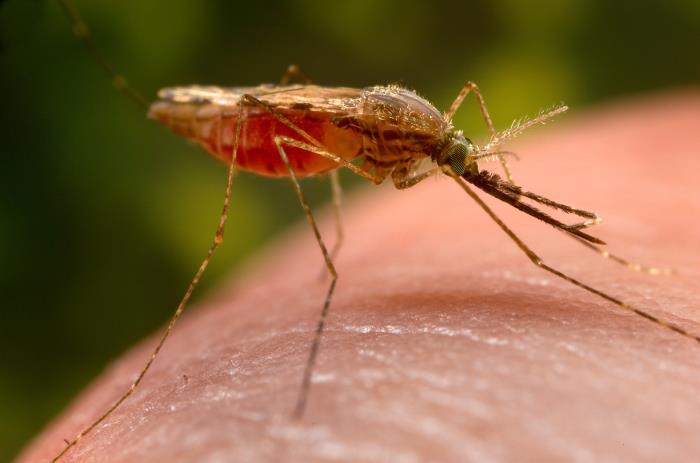Scientists want to use a genetically modified malaria parasite as a vaccine against the disease
Pictured here is a female Anopheles quadriannulatus mosquito — a type of mosquito that’s a known vector for malaria.
Despite the medical advances of the past century, malaria is still a global scourge. According to the World Health Organization, an estimated 429,000 people died of malaria worldwide in 2015, and there were over 200 million new cases.
Malaria’s continued toll is not for lack of prevention research: The most advanced vaccine, targeting a protein in the malaria-causing parasite Plasmodium falciparum, will be piloted in Africa next year. But in a Phase 3 trial, the vaccine’s efficacy ranged from just 27 to 39 percent in infants and young children.
“I would say that the main reason why we don't have an effective malaria vaccine is the complexity of the parasitic organism that causes malaria,” says Stefan Kappe, director of Translational Science at the Center for Infectious Disease Research in Seattle.
He explains that the parasite is nearly as complex as a human cell, with over 5,000 proteins. After entering the human body from a mosquito vector, the parasite first infects the liver, then multiplies to infect other cells in the body, changing at each stage of infection.
“It's kind of a turncoat parasite,” he says. “And so it has been extremely difficult to devise strategies to come up with an effective vaccine to prevent infection or prevent illness.”
But Kappe is the principal investigator on a promising new test pitting the malaria parasite against itself — “fighting fire with fire,” as he explains. By knocking out three genes in Plasmodium falciparum,his team created a weakened version of the parasite that can’t replicate in the body to pass on malaria, but still stimulates a human immune response.
Kappe says that in the first human trial, 10 volunteers (including himself) each received about 200 mosquito bites, delivering a total of about 100,000–200,000 of the genetically modified parasites. No one became ill — and he reports that even the itching wasn’t so bad:
“I’m not scratching any longer,” he says. “It has been a fun experience actually, sitting there with the volunteers and talking to them about the work, and they were so excited to do it.”
The strategy of using a weakened organism to train the body’s immune response against the full-strength version is similar to how we already vaccinate against viruses like polio. But Kappe says that weakening a parasite was a much bigger challenge than attenuating a virus. “The virus is a much less complex organism,” he notes.
Additionally, he says that traditionally, methods for weakening viruses like polio haven’t been very controlled. “[The viruses] were passed through tissue or tissue culture, for example, or through animals, and were just weakened in the process and then they were used as vaccines.”
In contrast, Kappe’s team used a “very, very designed” approach to weaken the malaria-causing parasites: “We pick genes that are important for the parasite to grow in the liver initially, and we delete those genes using genetic engineering and that renders the parasite unable to replicate after initial infection.”
Now, the next step for Kappe’s team is to test the vaccine’s efficacy, by repeatedly immunizing volunteers and then exposing them to “real,” or infectious malaria parasites, in a controlled environment. If the volunteers don’t develop malaria, it means that the vaccine works.
Kappe’s hope is that the whole-organism vaccine will not only work, but be more effective than vaccines targeting just one or a few of the parasite’s thousands of proteins.
“We have to get better than 30 percent [efficacy], and we hope with our approach we can get to 80 percent plus,” he says. “And there is good evidence that we can reach that.”
This article is based on an interview that aired on PRI's Science Friday.
